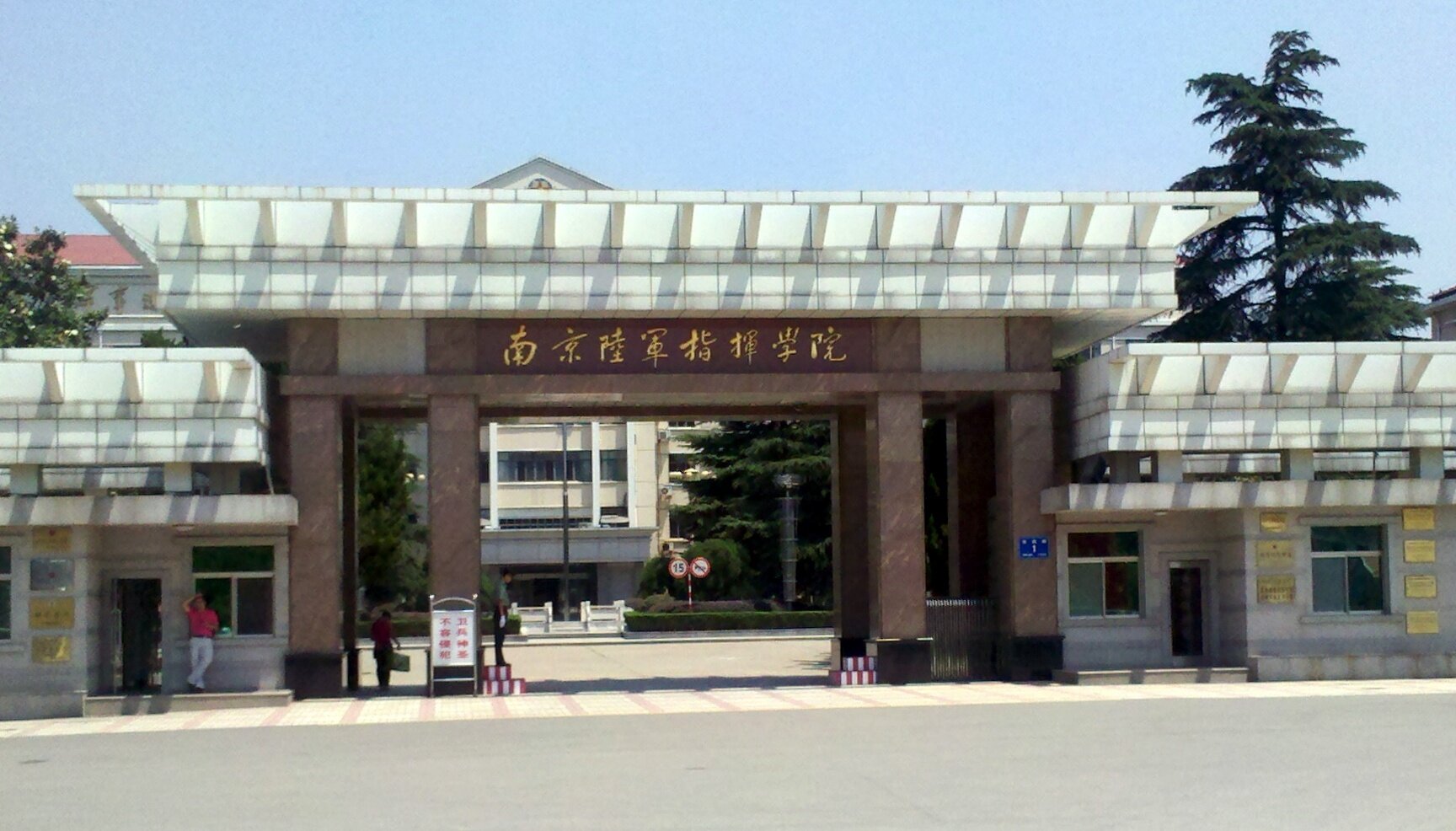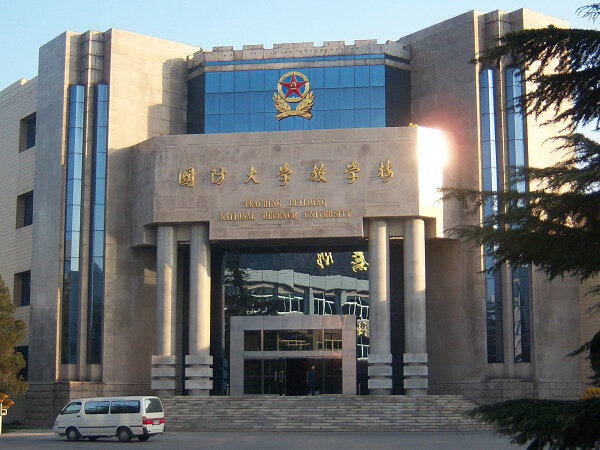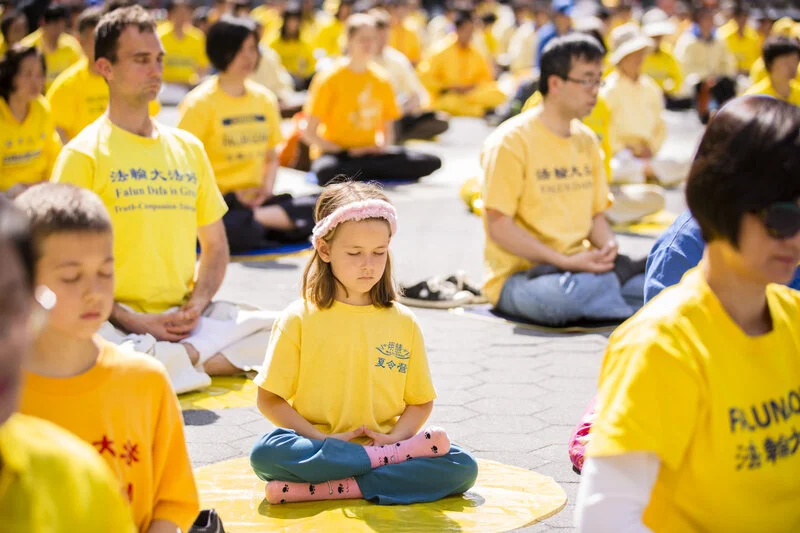The CCP Grooms Six Presidents for Africa to Create a Unified Front Zone for Global Domination
Hello, everyone, welcome to “Inconvenient Truths”. I am your host Jennifer Zeng.
If I tell you that the Chinese Communist Party, the CCP has trained 6 presidents for Africa, will you be surprised? Well, I was surprised when I first learned this fact. Today I’d like to talk about this important topic: the CCP’s decades of infiltration in Africa, and how the CCP wants to turn Africa into its own “Unified Front Zone” to dominate the world.
Six Presidents for Africa
The CCP’s decades of infiltration in Africa has paid off on March 12, when it won support from Russia and African countries such as Egypt and South Sudan for its condemnation of Australia's “human rights violations” in a statement to the UN Human Rights Council. By the way, the CCP’s so-called condemnation on Australia was just a retaliation, as Australia has been very tough on the CCP recently.
Since the CCP came to power, its military academy has trained not only six presidents, eight defense ministers, but also more than 100 commanders and a large number of military personnel for Africa.
Who are those 6 presidents? Let's list them one by one.
Samuel Nujoma, the founding president of Namibia
One is Samuel Nujoma, the founding president of Namibia; one is Jakaya Kikwete, the fourth president of Tanzania, one was Laurent Kabila, the third president of the Democratic Republic of the Congo; one is Isaias Afwerki, the first and current president of Eritrea; one was and Joao Vieira, the former president of Guinea-Bissau.
Jakaya Kikwete, the fourth president of Tanzania
Laurent Kabila, the third president of the Democratic Republic of the Congo
Isaias Afwerki, the first and current president of Eritrea
Joao Vieira, the former president of Guinea-Bissau.
All the above five presidents of African countries graduated from the CCP’s Nanjing Army Command College.
In addition, former Congo President Joseph Kabila, the eldest son of Laurent Kabila, once studied at the PLA National Defense University for six months, before being called back to the country by his father, then-President Laurent Kabila, due to a sudden change in the country's situation, and succeeded to the presidency after his father's assassination.
former Congo President Joseph Kabila
PLA National Defense University
In addition to the presidents, the CCP also trained a large number of military personnel for African countries through military academies such as the PLA National Defense University, Nanjing Army Command College and Shijiazhuang Army Command College.
Shijiazhuang Army Command College
Let’s see a picture of a lot of African military personnel marching in front of Nanjing Army Command College.
African military personnel marching in front of Nanjing Army Command College.
Free Aid in Mao Zedong’s Era
Apart from training presidents and military personnel for Africa, military, financial and other forms of aids are also widely adopted. But over the past few decades, the pattern of the CCP’s military aid to Africa has changed considerably.
During the CCP’s first generation leader Mao Zedong’s era, it was free aid.
Mao Zedong adopted a closed-door policy in his time. So he needed very much to draw in African and other third world countries to confront the two superpowers, the United States and the Soviet Union.
In 1971, Communist China succeeded in becoming a permanent member of the United Nations Security Council; and the votes of 26 African countries played a crucial role. In Mao Zedong’s own words, "It was the black African brothers who carried us in.”
From 1964 to 1985, under Mao's policy of "free aid," the CCP sent 226 batches of 3,418 military experts to 19 African countries, including Algeria, Tanzania, Congo, Zambia, and Mali, trained 17,000 soldiers, received 3,022 military trainees, and sent farming, engineering, and medical teams to assist those countries in building industrial and infrastructure projects.
In Mao Zedong’s own words, "It was the black African brothers who carried us into the UN.”
Mao Zedong meeting African guests on Aug 8, 1963.
Moderate Fees in Deng Xiaoping's Era
Then in the CCP’s second generation leader Deng Xiaoping’s time, he ended Mao’s closed-door policy to improve relations between China and the West, as the CCP was faced with isolation from the international community and its economy was on the verge of total collapse.
In the 1980s, Deng Xiaoping's military aid to Africa was adjusted from a free gift to a policy of charging appropriate fees and bartering, supplemented by free aid, and gradually increased the scale of military sales.
Over the following 30 years, the CCP sold to African countries military equipment such as jets, tanks, infantry fighting vehicles, escort boats and military equipment, the most common of which were the jets, K-8 trainers and WZ551 armored vehicles.
African countries such as Egypt, Tanzania and Algeria were the main buyers of Chinese weapons.
Arms Business in Jiang Zemin’s Era
The CCP’s third generation leader Jiang Zemin, who obtained his power via the crack down on the 1989 Tiananmen Square Protests, not only understood how politically important the Third World countries were, but also saw the enormous opportunities of doing business with them.
In 1996, after visiting six African countries, Jiang proposed a strategy of "going out" to develop the markets of Africa, Latin America, Southeast Asia, and other developing countries, as well as Eastern Europe and Commonwealth of Independent States countries.
Since then, the CCP replaced its arms aid policy with arms export.
In 2013, Chen Hongsheng, chairman of Poly Group, the largest arms dealer in China, said in an interview with the Chinese language website and magazine Talents that exporting weapons and equipment was an important part of the CCP’s diplomacy, and the CCP needed to sell equipment to buy resources. Let’s show a picture of Poly Group. This is its office in Beijing.
According to Chen Hongsheng, Poly had already acquired tens of thousands of square kilometers of land with oil reserves in Africa at that time.
Poly Group's 2013 annual social responsibility report shows that in 2013, Poly Technology's military export contracts amounted to $5.07 billion, accounting for half of China's total military export contracts in that year, and its military export contracts to African countries exceeded $1 billion.
High-End Arms Sale in Xi Jinping’s Era
Since Xi Jinping came to power, the CCP's high-end weapons have begun to appear frequently at major arms shows. Weapons such as Xiaolong combat aircraft (also Joint Fighter-17 Thunder), different models of escort vessels, multiple rocket launchers firing large-caliber rockets, and the Rainbow and Wing Loong series of unmanned aerial vehicles have been exported to Africa.
According to the Stockholm International Peace Research Institute (SIPRI) in Sweden, the top 25 global arms dealers traded a total of $361 billion in 2019, with the U.S. leading with a 61 percent share, China in second place with a 16 percent share.
SIPRI figures show that during 2016-2020, 16 percent of China’s arms exports went to Africa, while during 2014-2018, Africa accounted for 20 percent of China’s arms export.
Setting Up Overseas Military Bases, A Major Overhaul Of the CCP's Africa strategy
A major reorientation of the CCP's Africa strategy can be traced back to the summit of the China-Africa Cooperation Forum held in South Africa in December 2015.
At the summit, Xi Jinping presented Africa with some big gifts, including proposing the "Ten Major Cooperation Plans" for the next three years, a peace and security cooperation plan, and $60 billion of funding support.
In July 2017, the CCP established a military base in Djibouti, a country located in the Horn of Africa. The base covers an area of about 90 acres and can accommodate up to 10,000 troops, including weapon storage facilities, boat and helicopter maintenance facilities, as well as five commercial berths and a military dock.
Djibouti is the main artery of maritime trade between Europe, the Middle East and South Asia, and the starting point for military operations on the African continent. The United States, France, Japan and Italy all have military bases there, and the only permanent U.S. military facility in Africa is in Djibouti.
Although the CCP claims that its base there is only a "logistical support facility," it is seen as a major strategic move, marking the birth of the first Chinese military base overseas.
According to a Voice of America report in 2018, Djibouti might transfer control of the Doraleh container terminal to the CCP.
If this really happens, it will bring serious consequences for the supply of U.S. bases in Djibouti and the ability to resupply naval vessels.
In January 2020, Djibouti rejected a UK court ruling to hand back control of a container terminal to global port operator DP World, after taking it over two years ago and allowing the CCO to build a separate terminal for the growing African market.
Africa Is an Important Unified Front Region for the CCP to Dominate the World
According to U.S.-based Chinese current affairs commentator Li Yanming, Africa is an important unified front zone for the CCP to dominate the world.
In an interview with the Epoch Times, Li Yanming said that more and more people are seeing the CCP's global ambitions as it deploys its military power to Africa in addition to its economic, political and ideological penetration on all fronts.
According to Li Yanming, the reason why the CCP has been able to expand in Africa is because of the huge amount of money it has paid to African dignitaries and because African dictatorships have been able to strengthen their totalitarian rule with the help of the CCP.
He explained that when Western countries offer aid to Africa, they often demand human rights, freedom of the press and democratic values at the same time, and this makes African rulers unhappy.
However, the CCP’s slogan of "no political strings attached" has made African countries feel very much attracted.
Li Yanming said, under the background of the new cold war between the CCP and the US, the international forces led by the US are increasing their efforts to contain the CCP in the South China Sea, the Taiwan Strait, and the Korean Peninsula.
In the meantime, the CCP has recently deliberately publicized its military deployment and political and military influence in Africa to intimidate its rivals.
Li Yanming said that the CCP's doomsday gambler mentality and military ambitions should not be underestimated, and that Africa has become an important force in the new round of US-China rivalry, as well as one of the battlegrounds of the new US-China cold war.
Well, that’s all for today’s “Inconvenient Truths”. At the end of my last show, I said that I was discouraged by YouTube’s suppression of my channel. Since then I have received a lot of feedback, all encouraging me to carry on, and saying that what I am doing is important. So I really felt uplifted and encouraged by all the warm comments. I’d like to take this opportunity to thank all of you. Together, let’s fight against the censorship to get the truth out.
Thank you. See you next time!
4/3/2021
Truth Saves Lives. Subscribe and support! 真相能救命。請支持!
Donate to me directly 直接捐款:https://donorbox.org/inconvenient-truths-by-jennifer-zeng
Subscribestar 會員頻道: https://bit.ly/3fEzeJB
YouTube 油管:bit.ly/3b87DPj
GoFundme 衆籌:https://bit.ly/2zx6LVw
Patreon 網站:https://bit.ly/3cvBy3H
Paypal 捐款:http://paypal.me/JenniferZeng97
Bitcoin 捐款:bc1qlkkvwyvw96x3xx6jgzkhlnnv0nv3d9vm078vfd

















